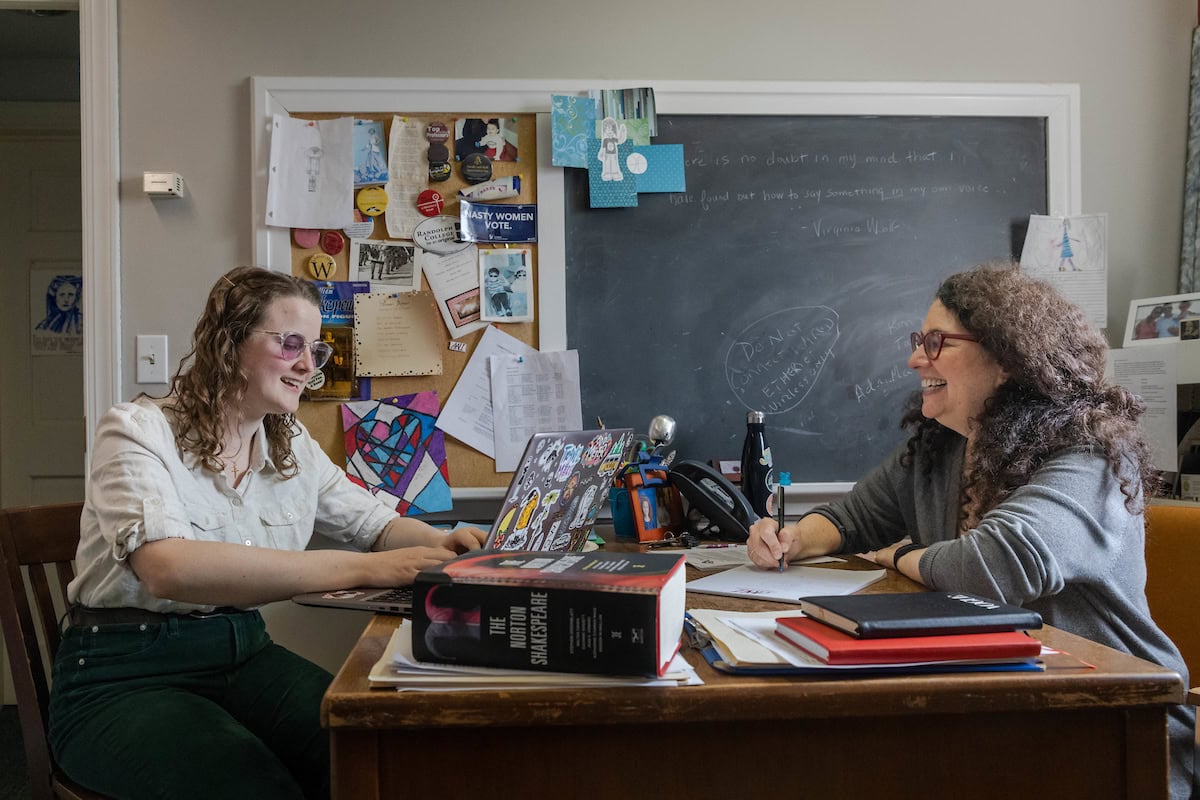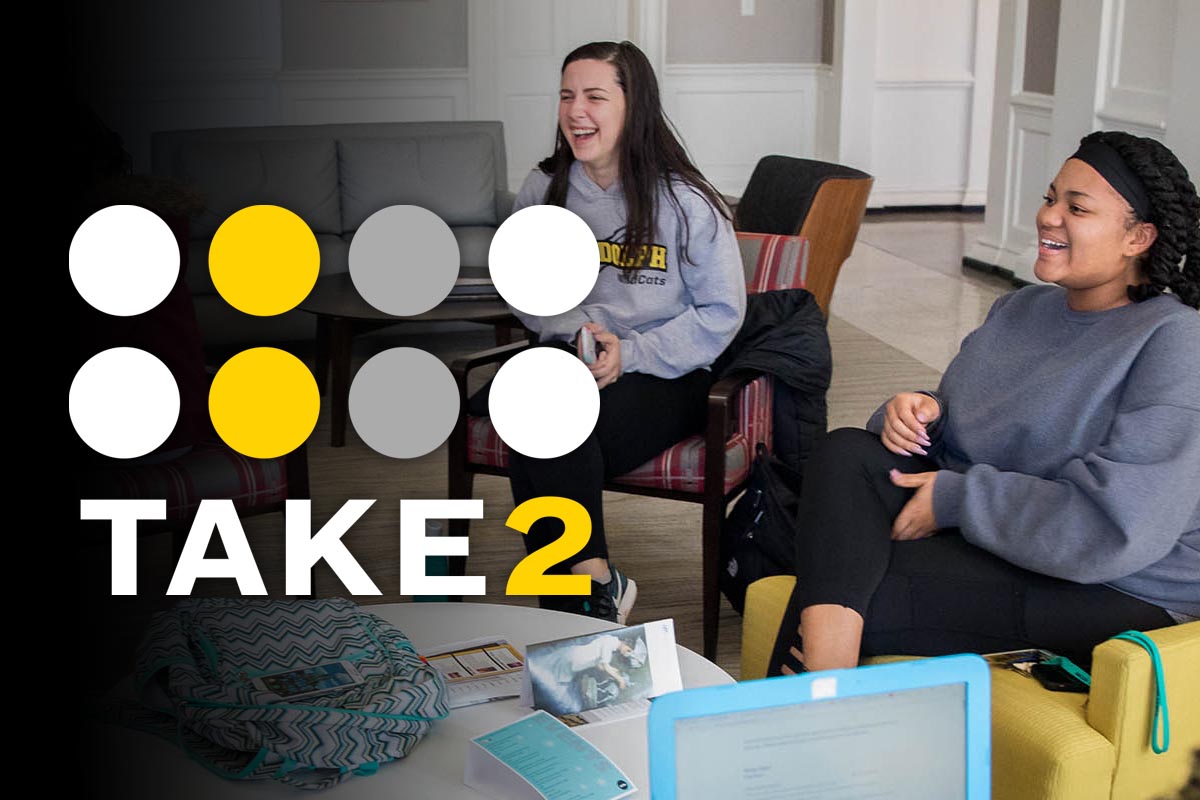A Shakespearean lens: Summer research using trio of plays to analyze Supreme Court confirmation hearing
This story is part of an ongoing series featuring the work of faculty and students participating in Randolph’s Summer Research Program.

Hannah Lambach ’24 and professor Mara Amster are looking at the connections between the 2018 confirmation hearings of Supreme Court Justice Brett Kavanaugh and three Shakespeare plays: “Much Ado About Nothing,” “Othello,” and “Cymbeline.”
Hannah Lambach ’24 is taking particular delight in sharing her summer plans these days.
“The way I’ve described it is reading and talking, and it’s going to be amazing,” Lambach, an English major, said. “I’m so excited. Just a lot of reading and talking.”
It will all happen as part of Randolph’s Summer Research Program and a project Lambach is working on with professor Mara Amster analyzing the 2018 confirmation hearings of Supreme Court Justice Brett Kavanaugh through a Shakespearean lens.
Amster has been thinking about the connections between the hearings and three Shakespeare plays—Much Ado About Nothing, Othello, and Cymbeline—since the highly publicized hearings, which included testimony from a woman, Christine Blasey Ford, accusing Kavanaugh of sexual assault 30 years prior.
“Situating the Kavanaugh hearings within a Shakespearean context is intended to illuminate (and, at the same time, complicate) concerns that were raised about gender, sexuality, power, reputation, privacy, and publicity,” Amster and Lambach wrote in their research proposal. “Placing the hearing into conversations with the plays might also allow us to move away from the heated rhetoric that emerged and consider the implications of relying on formulas that so tightly connect reputation to assumptions about sexuality and gender.”
Amster, Randolph’s Charles A Dana Professor of English, was teaching an Introduction to Shakespeare course when the hearings were first held. She was reading the plays with her students, considering how the similar plot of a woman accused of infidelity takes different forms when issues of genre—comedy, tragedy, or romance—enter the picture.
Amster would watch recaps of the hearings in the evenings, then come into class the next day to talk with students about things like reputation and credit, and what it means when women are accused of sexual indiscretion.
“One of the big questions in those plays is why no one believes them,” Amster said. “I kept thinking about those questions. And, here, it was the same thing but also switched. Christine Blasey Ford was not necessarily being believed. But she wasn’t being accused of sexual indiscretion. He was. It felt similar and yet different. Then, of course, I remember reading somewhere that Kavanaugh said his reputation was going to be destroyed. The exact same thing is said in Othello.”
There were connections there, but Amster wasn’t sure exactly what they were. She presented about the topic at a Shakespeare Association of America seminar in 2019 and planned to continue the research during her sabbatical next spring.
Now she’s returning to the work sooner with Lambach, starting with a close reading of the three plays in question.
Lambach has never read them before, which they both expect to be an asset in their research.
“I’ve never been drawn to Shakespeare, which is ironic,” Lambach said. “I’m going in with a certain lens already, with specific ideas in mind. Things may surprise me that maybe, if I was rereading the plays, wouldn’t have surprised me because I’d be expecting them.”
They’ll also do a textual analysis to see if anyone else has written about any of the plays in relation to Kavanaugh, followed by a deep dive into how the press covered the hearings in terms of three specific categories: reputation, evidence, and credit.
They will look at newspaper articles and editorials, as well as a series of books published, by both liberal and conservative authors, since the hearings.
Lambach’s focus will be on social media, where so much of the conversation around the hearings also took place.
“She can go down those rabbit holes,” Amster said. “Hannah has an ability and interest in figuring out where a trail will lead her. I’m so excited that she can do it and is really smart about the way she does it. She’s always really thoughtful about how she puts things together. That is going to be a great untapped resource for me that I would never have been able to include in my own work.”
Tags: English, English literature, summer research 2023, Summer Research Program
